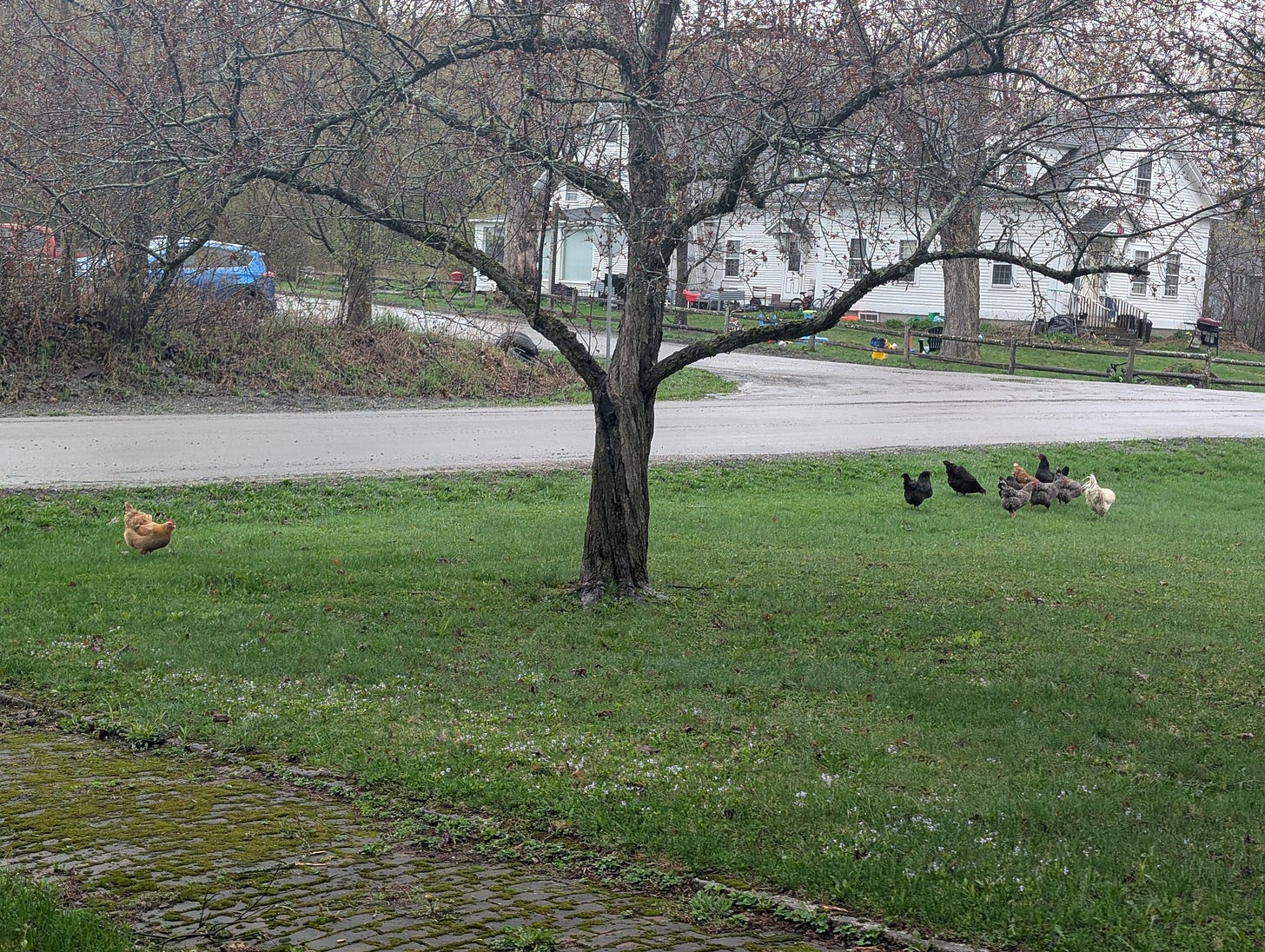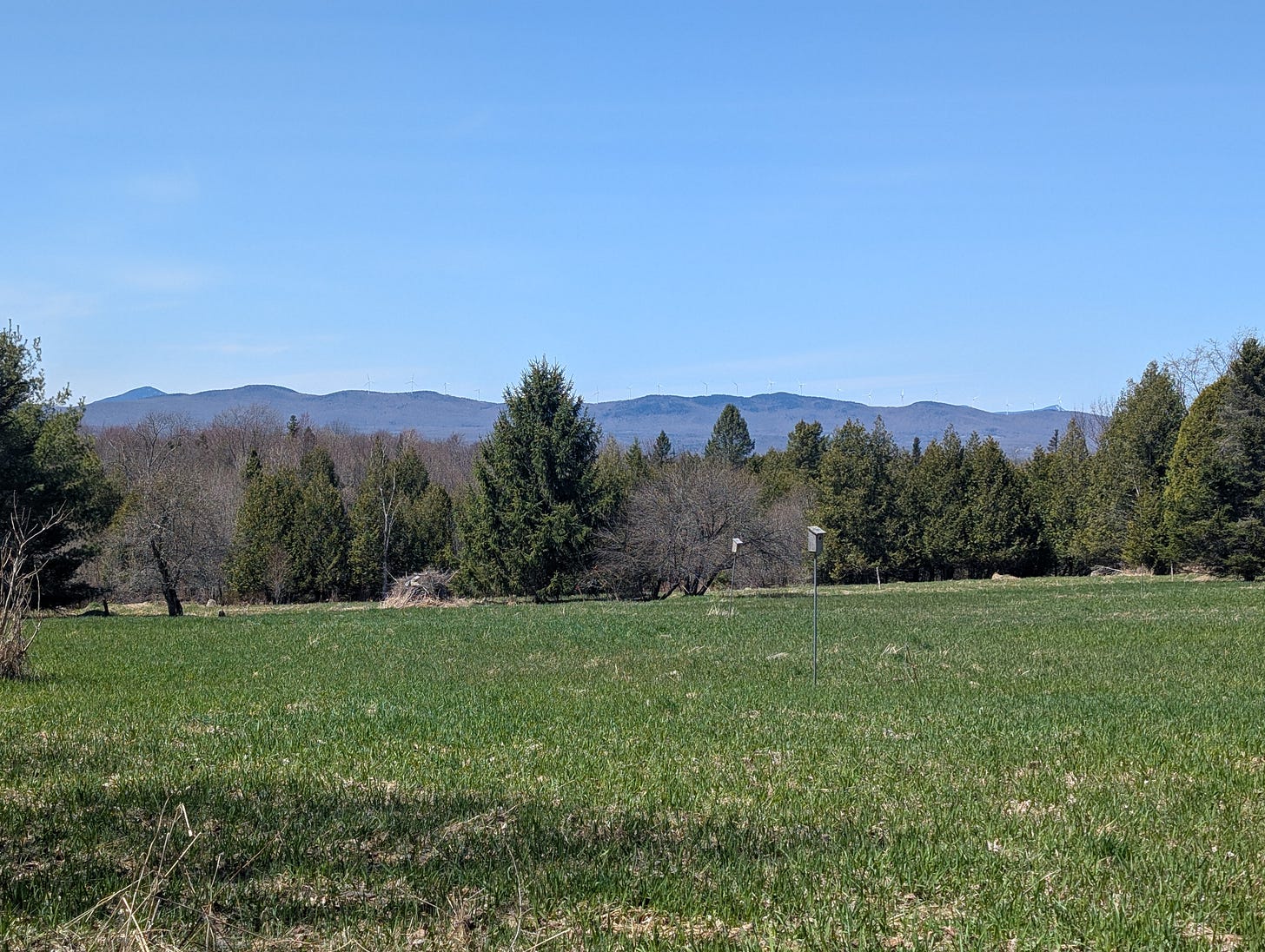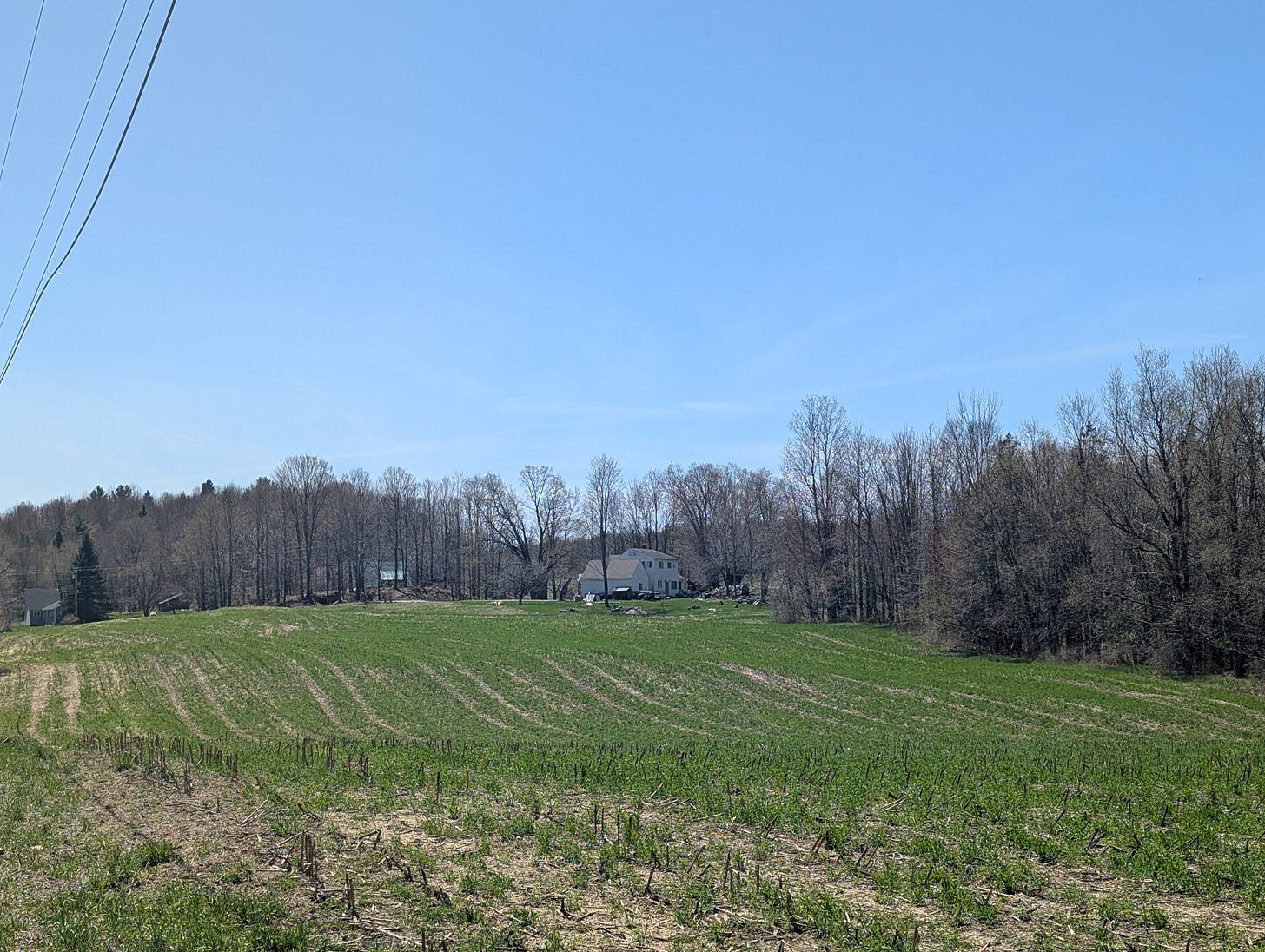The First Breakfast
Let Jesus Cook
Just after daybreak, Jesus stood on the beach, but the disciples did not know that it was Jesus. Jesus said to them, “Children, you have no fish, have you?” They answered him, “No.” He said to them, “Cast the net to the right side of the boat, and you will find some.” So they cast it, and now they were not able to haul it in because there were so many fish. That disciple whom Jesus loved said to Peter, “It is the Lord!” When Simon Peter heard that it was the Lord, he put on his outer garment, for he had taken it off, and jumped into the sea. But the other disciples came in the boat, dragging the net full of fish, for they were not far from the land, only about a hundred yards off.
When they had gone ashore, they saw a charcoal fire there, with fish on it, and bread. Jesus said to them, “Bring some of the fish that you have just caught.” So Simon Peter went aboard and hauled the net ashore, full of large fish, a hundred fifty-three of them, and though there were so many, the net was not torn. Jesus said to them, “Come and have breakfast.” Now none of the disciples dared to ask him, “Who are you?” because they knew it was the Lord. Jesus came and took the bread and gave it to them and did the same with the fish. This was now the third time that Jesus appeared to the disciples after he was raised from the dead.
When they had finished breakfast, Jesus said to Simon Peter, “Simon son of John, do you love me more than these?” He said to him, “Yes, Lord; you know that I love you.” Jesus said to him, “Feed my lambs.” A second time he said to him, “Simon son of John, do you love me?” He said to him, “Yes, Lord; you know that I love you.” Jesus said to him, “Tend my sheep.” He said to him the third time, “Simon son of John, do you love me?” Peter felt hurt because he said to him the third time, “Do you love me?” And he said to him, “Lord, you know everything; you know that I love you.” Jesus said to him, “Feed my sheep.”
John 21:4-17
We are in the third Sunday of Easter in this atmosphere of resurrection, and today we get to hear this wonderful story of the strange, beautiful, gentle triumph of grace. Before Good Friday we had “the Last Supper,” and now we have what many call “the First Breakfast.” Both teach us about the utter centrality of relationships in the gospel.
In John’s gospel, Jesus has already appeared to some of his disciples who, with one exception, don’t recognize him at first. So Jesus keeps showing himself, each in turn with how they individually seemed to need to hear him. This is an important paradox in our faith: our individuality with Christ within unity in Christ.
Going back to the tomb,1 pay attention to how he shows himself uniquely to each set of people. He calls Mary by name, and suddenly she realizes she’s not talking to the gardener, it’s “Teacher!” Later, more of his disciples are living in terror of what comes next, and what does he do? He appears behind the doors they had locked themselves in and says, “Shalom,” peace. Our rational skeptic Thomas makes it very clear what it would take for him to believe, and Jesus shows him those very wounds, and suddenly “Doubting Thomas” becomes “My Lord I Believe Thomas.” In our story today, the boys go out fishing, and they don’t recognize him either until he helps them fish. And finally, when he gathers them over a charcoal fire for a beach barbecue, there is no mistaking it. Bread, fish, and fire; the Lord.
But he’s not done, no, not with Peter. To heal the relational wounds of Peter’s three-times denial and betrayal, Christ asks him three times, “Do you love me?” “Do you love me?” “Do you love me?” “Then feed my sheep.”
This is hardly anything new, but it also cannot be said enough: our faith is a relational faith, because our God is a relational God. Before we are a religion of ideas, we are first a body of Christ in relationship with one another through our relationship to Jesus.
I know many of us Christians, myself included, get very in love with and attached to our ideas, including our ideas about God. And it is really important to talk about these ideas. I wish our Bible study numbers would go through the sanctuary roof! But sometimes we are more in love with our ideas than we are with the people God has given us. I know for many people, we might actually love Jesus more as an idea than the actual living Christ and where he is among real people.
But Jesus isn’t an idea any more than you are an idea. No, Jesus wants to have a real relationship with you—the real, individual you—and he wants you to have a real relationship with the real him.
Our ideas about God that we call “theology” are important, yes, but not in a vacuum—we don’t do theology for theology’s own sake (even though it often feels that way), just as we shouldn’t do politics for politics’ sake (even though it often feels that way). Ideas are important because of how they shape our relationships. You can’t have a human-to-human relationship to an idea, which makes it all the more ironic about how much we fall in love with them. I say all this as someone who loves theology and the life of the mind. But I also have the benefit of having had a lot of different ideas that I once loved that I realized over time weren’t so good. I’m sure you have too.
I’ve sometimes wondered, why is it that we put our bookshelves on display? Sure, partly because where else would we put them…but I wonder if a bookshelf is also a way of showing our friends, “Hey, take a look at all these great ideas I’ve learned from” (or at least intended to). And if you were to take a look at all my bookshelves—including all the hidden bookshelves and books that I’ve boxed away and the ones I gave away years ago—you would see a history of ideas I was fascinated by, including a history of bad ideas that failed me. As true and as useful as some ideas can be in part, eventually, all ideas fail at the point of contact with reality.
If you have a relationship with Jesus as an idea, that will eventually fail too. But Jesus himself will never.
Perhaps this is why the disciples could not recognize Jesus at first, because this resurrected Christ was so far beyond their idea of who he was, far beyond their ideas about how they thought reality worked, far beyond all their ideas. The living Christ is always challenging our ideas, because the living Christ is our point of contact with reality that ideas can only point to. We’re now at the end of John’s gospel, but think of what John says in those first famous words: “In the beginning was the Logos, and the Logos was with God, and the Logos was God. He was in the beginning with God. All things came into being through him, and without him not one thing came into being.”2 That is maybe the biggest possible idea, Christ as Ultimate Reality.
And now at the end of John, here is that Ultimate Reality taking on the form of a single person, full of scars, and he just wants to cook fish with his friends—even the friends who helped give him those scars.
How remarkable is this? As Paul tells his Roman siblings in Christ, “Rarely will anyone die for a righteous person—though perhaps for a good person someone might actually dare to die. But God proves his love for us in that while we still were sinners Christ died for us.”3 That is the center of our living relationship with the living Jesus that he wants us to share with each other: a willingness to die for us and do anything to be with us.
Sometimes, though, many of us “more educated” Christians (if only institutionally, and on one dimension) are wary about talk of a “personal relationship with Jesus.” I think there’s good reason when we’ve seen that be a stand-in for self-righteousness and willing ignorance. Some people see how that idea can make some Christians narcissistic. I think those are fair critiques. But I think it also misses the point that a real relationship with Jesus will not keep us drawn into ourselves, but send us out to have realer relationships with other people in the fullness of his truth and love. This may not always mean agreement, it will even mean tremendous pain at times. But if I'm not honest with him, I can’t be honest with other people. If I don't let him be honest with me, it's hard to let other people be honest with me. If I don't feel and seek to understand his judgment and his sense of what's right and wrong, I'm not going to know how to navigate life with a sense of right and wrong either. And if I don't feel his grace, I'm not going to know how to extend that grace to other people.
So, how do we know more? How do we develop a relationship with Jesus as a person? Paradoxically, not by ourselves. We pray together. We read the Word together. We find him where he says he is in Matthew 25, among those who are in need wherever they are. And we so often start by just sharing meals.
That’s why we always come back to remember him at the table. We remember him through the words he gave us at the Lord’s Supper, and we also celebrate him in the First Breakfast and anywhere we are breaking bread together. The sanctuary communion table is vitally important in connecting with him in the bread and the wine and in the specific way he shared it with us and the words he wanted us to use to remember him.
But his table is not just the table in the sanctuary. It's the meal on the beach, it's the back porch on the May afternoon with a couple of elders. It's sandwiches at the Genny after church. The world is his table.
Some in our church here in Craftsbury want to figure out how to have more conversations across political differences and better understand each other in this broken world, a world where we are getting more and more passionate about the gulf of differences in our ideas and the real harm those ideas cause. In that sense, ideas gravely matter, and the differences are real. But sometimes we forget that bridging those understandings has to start with actually not the ideas, but with the relationship.
After the resurrection, Jesus didn’t land on the beach and deliver the Apostle’s Creed (as important as it is for understanding him!). No, he cooked over a fire with friends. He asked if they loved him. And he asked for them to tend to each other and follow him, even if it meant sharing in his pain like he shared in ours.
Sometimes it is impossible to have relationships with everyone who has hurt us and who have hurt other people, and vice versa. We really are all sinners. We often can’t admit how our favorite ideas harm people. But that real neighbor of ours, and that real you, and that real me, who is sometimes too self-involved, sometimes too self-righteous, sometimes unable to really love people like they deserve…that’s the real you Jesus wants to have a relationship with. He doesn’t want to have a relationship with a fake idea of you as a perfect person. He doesn’t want to have a relationship with your Facebook page. He wants to be with the real you.
Into our real fallen human nature, God showed up to his friends who abandoned him. The risen Lord showed up to the people who betrayed him, sold him out, and acted like he didn't exist. To them he said, “Let's have a fish fry.”
This is only the first breakfast. Let us go and cook likewise.
John 20
John 1:1-3
Romans 5:7-8








I love this, Joe. For some reason I’ve never heard of this as “the First Breakfast.” But I like to joke that “come and have breakfast” is my favorite command in the Bible. You also remind me of a quote I’ve been pondering from David Ford’s commentary, where he discusses the phrase about Jesus as “in the bosom of the Father.” He translates this as “close to the Father’s heart,” and writes, “Here John is pointing to the deepest secret of reality: the relationship between the Father and the Son. Love is not mentioned at this point, but the rest of the Gospel makes it clear that this is above all a relationship of love…[T]he whole Gospel can be read as an invitation to take part fully in the love between the Father and the Son.”